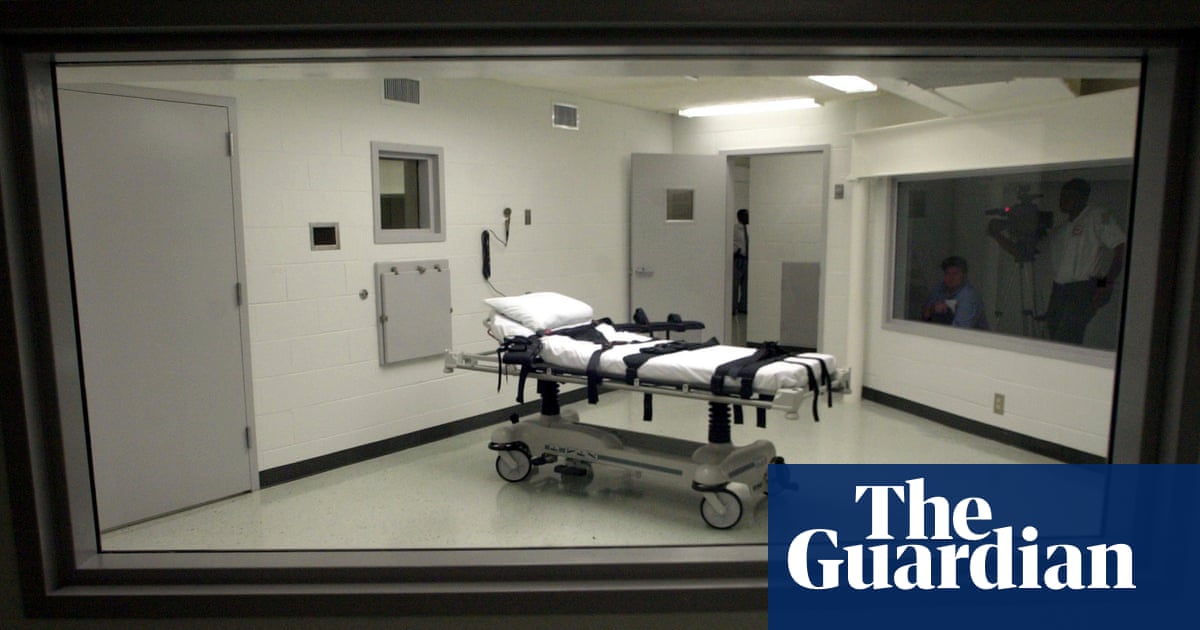Move follows Alabama’s recent killing of death row inmate Kenneth Smith using previously untested method
Three of the largest manufacturers of medical-grade nitrogen gas in the US have barred their products from being used in executions, following Alabama’s recent killing of the death row inmate Kenneth Smith using a previously untested method known as nitrogen hypoxia.
The three companies have confirmed to the Guardian that they have put in place mechanisms that will prevent their nitrogen cylinders falling into the hands of departments of correction in death penalty states. The move by the trio marks the first signs of corporate action to stop medical nitrogen, which is designed to preserve life, being used for the exact opposite – killing people.
The green shoots of a corporate blockade for nitrogen echoes the almost total boycott that is now in place for medical drugs used in lethal injections. That boycott has made it so difficult for death penalty states to procure drugs such as pentobarbital and midazolam that a growing number are turning to nitrogen as an alternative killing technique.
Now, nitrogen producers are engaging in their own efforts to prevent the abuse of their products. The march has been led by Airgas, which is owned by the French multinational Air Liquide.



If a human chooses euthanasia because of endless and needless suffering, say stage 4 cancer, that sort of thing, I’ll sit right next to them, hold their hand too.
When we execute a human, it’s a different story and as I wrote this I wonder if I really have to explain the difference between euthanasia and an execution…?
I’m sorry I really don’t understand what your point is.
The question is why does execution have to be so awful, and your answer is because it’s an execution. But that doesn’t really answer the question, is execution of punishment or is it just a method to get rid of dangerous individuals? If it’s a method to get rid of dangerous individuals then there’s no reason for it to be unpleasant.
If it’s a punishment then wouldn’t the great a punishment be life in prison. Where they have to deal with it every day, rather than getting out early?
If you find killing humans not unpleasant just because those human beings are bad then you might want to get a psychiatric checkup
It’s neither. The dangerous individuals have already been removed from society so killing them is unnecessary. And, as you’ve pointed out, a life sentence is a much better punishment so executions aren’t about punishment. It’s not a deterrent, as some advocates suggest, since the homicide rate is higher in states with the death penalty than those without.
Ultimately, the purpose of executions seems to be revenge. I think there’s more nuance than that but every time I attempt to express it I discover that I can’t do so succinctly. I sincerely apologize to anyone that might read this and feel like I’m misrepresenting their position.
You’re missing the point. The question was, “how is it medically different” rather than, “how is it morally different”
The moral question is still the issue, though. The original question was asking how is it so difficult to humanely execute a human.
It’s difficult only because of the difference between execution and euthanasia. The drug companies argue that execution is inhumane and euthanasia is humane.
As a result, they have made it harder to execute people while making the process of euthanasia as painless as possible.
You asked how it’s different to kill a human than a pet. Medically speaking there isn’t, really, so you get the moral answer